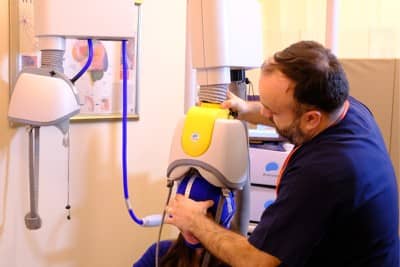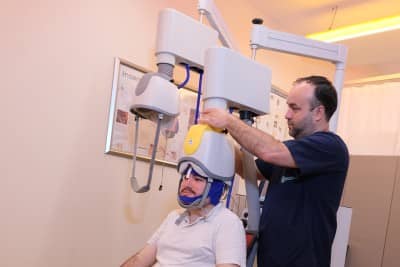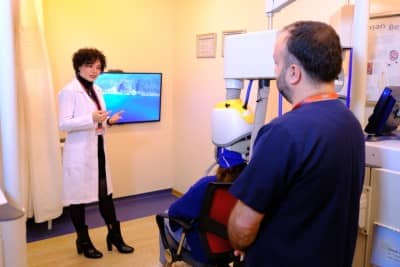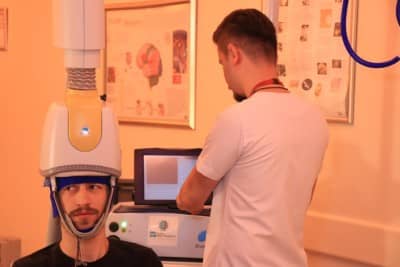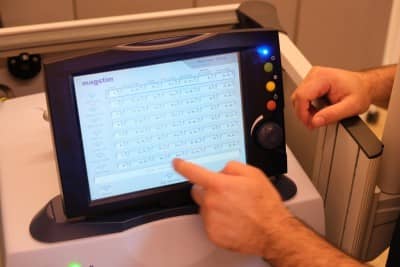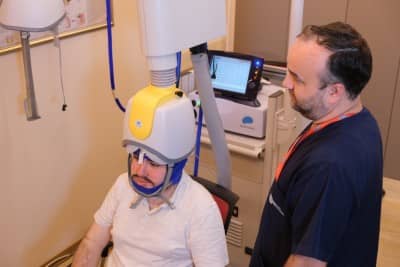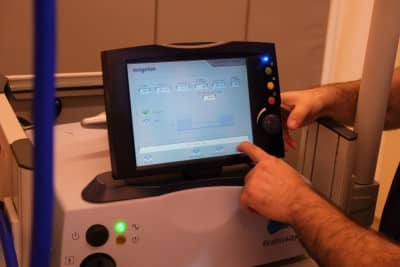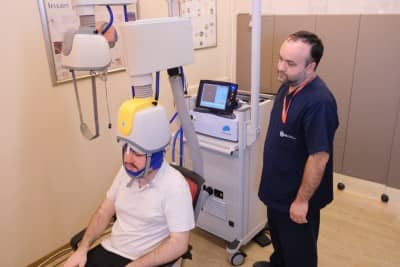Which part of the brain does Deep TMS affect?
Deep TMU (Deep TMS) is a treatment method used especially in the treatment of addiction. It is also used in other psychiatric disorders. The Deep TMU (Deep TMS) method used in addiction treatment stimulates deeper and more internal areas of the brain that cannot be stimulated with classical TMU.
The Deep TMU device is a method that stimulates regions of the brain such as Insula, Anterior Cingulate Cortex, which play a role in addiction by acting on a deep region.
Which diseases is Deep TMU (Deep TMS) applied in the treatment of?
Deep TMS is used in addiction, schizophrenia, Obsessive Compulsive Disorder (OCD), Adult Attention Deficit Hyperactivity Disorder and some other psychiatric diseases. Thanks to the features of the head used in the device, different brain regions can be stimulated in different diseases. The use of Deep TMU in Depression and Bipolar Disorder is FDA and CE approved. It is used especially in the treatment of depression in the USA, Canada, Australia, Germany, Belgium, Belgium, Italy and other European and South American countries.
Why is Deep TMU (Deep TMS) important in addiction treatment?
Prof. Dr. Nesrin Dilbaz, who gave information about Deep TMU application, stated that "Since addiction is a difficult disease to treat, it is important to regulate the brain regions that are impaired in the treatment". Today, it is known that addiction is a chronic and recurrent brain disease like schizophrenia or a chronic disease with long-term treatment like diabetes. Addiction is not caused by a lack of willpower, a lack of personality or moral weakness. It is caused by changes in hormones called neurotransmitters such as dopamine in the areas called reward centers located deep in the brain. Powerful treatments such as deep brain stimulation can be effective in reversing these changes.
Deep TMU (Deep TMS) applications in addiction treatment:
Prof. Dr. Nesrin Dilbaz said, "The goal of addiction treatment is firstly to eliminate the alcohol/substance from the body and then to reduce the desire/craving (craving) for this substance. Almost half of addiction patients have difficulty in coping with the desire to use alcohol/substances despite treatment methods such as medication, psychotherapy, family therapy, which are still being applied in the treatment protocol. The aim of Deep TMU is to stimulate deep brain regions with the TMU method. Recent studies have shown that Deep TMU treatment reduces the cravings of addiction patients to use cigarettes/alcohol/substances, which we call cravings. In addition to reducing cravings with Deep TMU application, it also helps by reducing impulsive behaviors that cause substance use in the individual and improving the person's ability to make healthy decisions. As a result of stimulation of these areas, interest in addictive substances decreases and self-control ability of the person increases. It becomes more resistant to addictive substances. Session durations vary according to the type, amount and frequency of the substance the patient is using."
In which cases is Deep TMU necessary?
Prof. Dr. Nesrin Dilbaz pointed out that the Deep TMU method should be used in addiction patients, especially in cases of relapse after treatment, if the patient seeks the addictive substance despite the known treatments.
Noting that 60-70% of addiction patients are accompanied by other psychiatric diseases such as depression, anxiety disorder, psychosis, Prof. Dr. Nesrin Dilbaz said, "Deep TMU applications are effective in treating the accompanying psychiatric disease together with addiction."
Does deep TMU pose a health risk?
Stating that deep TMU is a low-risk application as in classical TMU, Prof. Dr. Dilbaz said, "Deep TMU is considered as a very low-risk application since no interventional procedure is performed to the patient compared to other brain stimulation methods as in classical TMU. This method does not leave any damage to the brain".
What isthe use of Deep TMU in the treatment of Obsessive Compulsive Disorder (OCD)?
Stating that Obsessive Compulsive Disorder (OCD) is characterized by obsessive thoughts and repetitive behaviors that cannot be removed from the mind, Prof. Dr. Nesrin Dilbaz said, "In this disorder, many patients may be resistant to drug treatment. So much so that many patients have to live with this disorder because the treatment fails. In patients, control over thoughts and behaviors can be increased by stimulating brain regions such as the anterior cingulate area with Deep TMU. " he said.
In which diseases is Deep TMU applied?
- Alcohol addiction
- Smoking addiction,
- Cocaine addiction,
- Multiple sclerosis - to relieve fatigue,
- Neuropathic pain
- Obsessive Compulsive Disorder,
- Autism - Increasing communication skills,
- Parkinson's disease
- Alzheimer's Disease,
- CE approval is available for resistant neuro-/psychiatric disorders such as Negative symptoms (withdrawal, apathy) in Schizophrenia.

